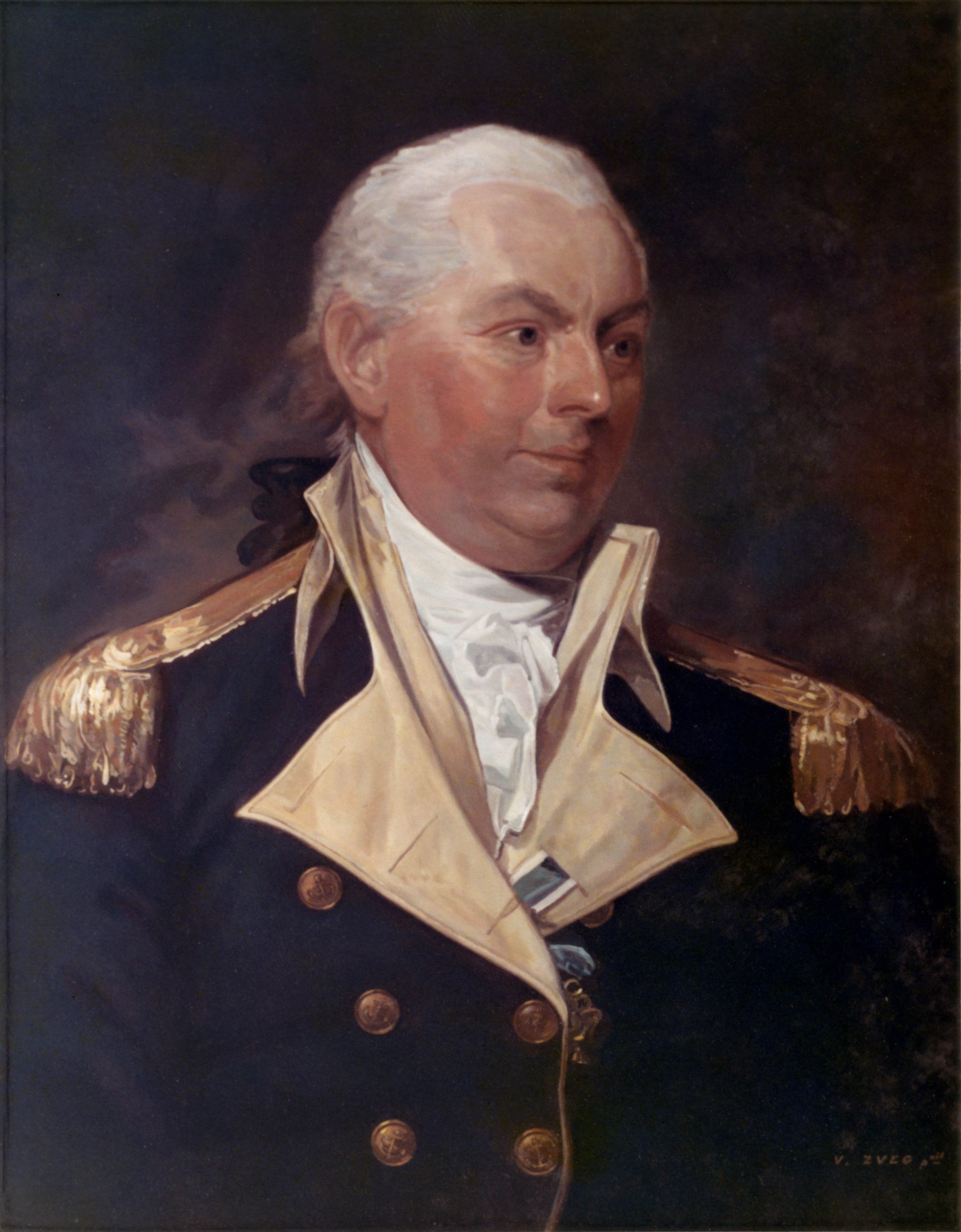Search
John Barry

Born March 25, 1745 - Died September 13, 1803
John Barry was an Irish-born American naval officer.
Barry was born on March 25th, 1745 in Tacumshane, County Wexford, Ireland. His family was driven from their ancestral home by the British and they fled to the United States.
Barry, throughout his life was a religious man. He began every day at sea with a prayer and bible reading. He also had great regard for all of the crews he commanded and made sure they were well taken care of. Despite this, during his entire career with the United States Navy, including the time during the Revolutionary War, Barry put down three mutinies.
Barry was given command of the USS Lexington on December 17th, 1775. It was the first commission issued by the Continental Congress. He was later commissioned as a Captain, by the Continental Congress and signed by John Hancock President of the Congress, on March 14th, 1776. During his command of the Lexington he captured the Edward, a tender for the HMS Liverpool. On June 28th of 1776, Pennsylvania's brig Nancy ran aground with nearly 400 barrels of gun powder aboard. In the night, Barry ordered all but 100 barrels rowed ashore. He then ordered a delayed fuse set on the remaining barrels. As British sailors attempted to board the Nancy, the gunpowder exploded. The engagement became known as the Battle of Turtle Gut Inlet.
In 1777, Barry was in command of the USS Delaware. The ship sailed under a letter of marque, making it a privateer. He captured several English vessels in the Delaware River. After the Delaware, Barry was placed in command of the USS Raleigh. It was run aground in September of 1778. Barry and the crew scuttled the ship, the British were able to re-float the vessel and it was used by the British Navy.
At the end of the American Revolution, Barry was given command of the USS Alliance. The Alliance fought and wpn the last naval battle of the American Revolution off the coast of Cape Canaveral.
During the American Revolution it is alleged the British Government offered Barry 100,000 pounds and command of any frigate he chose in the British Navy if he abandoned his new home. The offer outraged Barry. He responded not all the money in the British treasury or command of its entire fleet could tempt him to desert his adopted country.
After the American Revolution, Barry was given command of the frigate USS United States. He commanded the ship during the undeclared war between America and France, referred to as the Quasi-War. The war only consisted of naval battles. He also sailed his vessel to France to negotiate the end of hostilities. In 1797, President George Washington issued Commission number 1, granting Barry the rank of Commodore. He is recognized as the first officer of the United States Navy and the first Flag Officer. In 1801, Barry sailed the United States into port for the last time. He remained in charge of the United States Navy until his passing.
Barry passed away on September 13th, 1803. He died from asthma.
Barry was a member of Old Lodge No. 2 in Philadelphia, Pennsylvania.
This article provided by Brother Eric C. Steele.